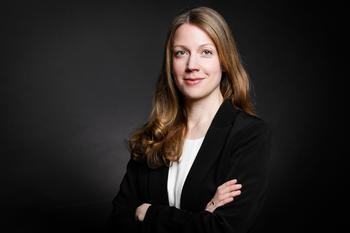Kerstin Schulz M.A.
Kerstin Schulz is a Doctoral Fellow at the Department for Political and Social Sciences at Freie Universität Berlin. In her doctoral thesis, she conducts a qualitative network analysis of the German foreign policy towards Russia. Kerstin has studied Russian Studies at the European University at St. Petersburg, European Studies in Bath, Prague and Berlin, and Communication Studies at the University of Erfurt. In her studies, she majored in the field of political communication research and foreign policy analysis. After her graduate studies, she worked on her research project at the Berlin Graduate School for Transnational Studies and completed a research stay at the Centre for European and German Studies at St. Petersburg State University. Kerstin works as Senior Project Manager in the field of international understanding at Robert Bosch Stiftung.
Thesis: Networking matters. An actor-centered approach to the German foreign policy towards Russia.
[German working title: Networking matters. Eine akteurszentrierte Betrachtung der deutschen Russlandpolitik.]
ABSTRACT
Foreign policy processes underlie continuous change. In times of globalization and new communication technologies, scholars emphasize the increasing complexity of actor constellations, including formal, but also non-transparent informal structures (Hellmann 2006: 58). Foreign policy is discussed in the context of „constant change, mixed actorness and a lack of structure“ (Hill 2003: 193). In liberal school of thought, there is a broad consensus that the making of foreign policy cannot be reduced to state actors-relations. Instead, foreign policy actions incorporate a „multitude of influences – structural and agential – that continually impinge on them and on their decision-makers“ (Carlsnaes 2010: 334). The research perspective of the doctoral project ties in the demand for a more in-depth analysis of these complex actor constellations. Obvious and relevant from a normative perspective is the analysis of perceived exertion of influence of non-state actors on foreign policy processes. Beyond the media, non-governmental organizations, interest groups, political advisors and the academia are subject of academic discussion among others.
The aim of the doctoral project is to shed more light on these complex actor constellations, the perceived relevance of non-state actors and their self and external perception in foreign policy – while investigating the case study of the German foreign policy towards Russia. Methodologically, the paper applies an instrument, which has proven promising for research perspectives, analysing „interpretations […], subjective perceptions, individual attribution of relevance and action orientation” (Hollstein 2006: 21, own translation): the qualitative network analysis. Empirically, the analysis of the doctoral project is based on 50 expert interviews which have been conducted with relevant state and non-state actors in the context of the German foreign policy towards Russia.

